police
Latest
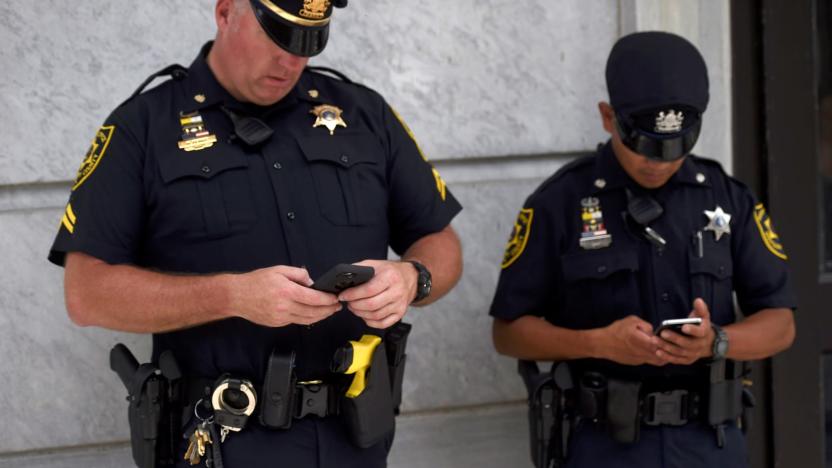
Axon hopes you'll submit smartphone video as evidence
In theory, handing your smartphone video over to the police if you have evidence of a crime is the right thing to do -- it provides accountability and could be the key to a conviction. However, those contributions are about to enter a gray area. Axon (the brand formerly known as Taser) has confirmed that it's working on a "Public Evidence Product" that would let you submit photos and videos to Evidence.com, its cloud platform normally used for police footage. That doesn't sound so bad on the surface, but the handling and potential motivations are raising concerns that this amounts to excessive privatization of the justice system.

UK police are using detection dogs that can sniff out USB drives
Devon & Cornwall and Dorset Police have begun utilising special FBI-trained sniffer dogs that have been specifically trained to detect hidden storage devices. Police dogs Tweed, a 19-month-old springer spaniel, and Rob, a 20-month-old black Labrador, are the first dogs outside of the US that will help track "terrorists, paedophiles and fraudsters" by tracing the unique chemicals found in hard drives, USB sticks and SD cards.
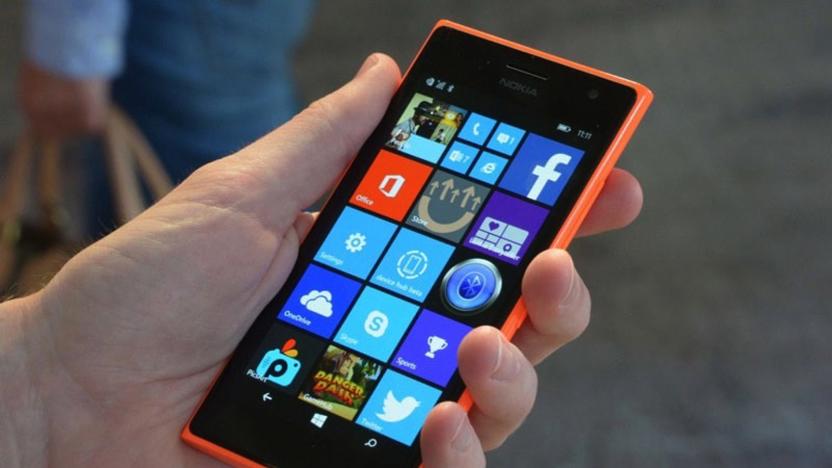
NYPD is already replacing its Windows phones with iPhones
The NYPD is learning a hard lesson about the dangers of buying a declining smartphone platform in bulk. The New York Post understands that the police force is replacing all 36,000 of its officers' Windows phones with iPhones just two years after the rollout began. It's not exactly clear as to why, but Microsoft recently ended support for Windows Phone 8.1 -- the standard-issue Lumia 830 and 640 XL devices won't get any help if something goes wrong. The switch to iPhones also suggests that the NYPD doesn't see a long-term value in upgrading to Windows 10 Mobile.

London police issue head-mounted cameras to armed officers
London's Metropolitan Police Service (MPS) will soon issue body-worn video cameras to armed officers. Members of the city's Firearms Command will be required to wear them on their caps or ballistic helmets in the field. The placement differs to regular police officers, who wear them on their shirt or jacket, to prevent obscured recordings while raising or firing a weapon. It's hoped the new deployment will make officers more transparent and accountable, improving public trust in the process. Cameras could also serve as a deterrent both for officers considering misconduct and members of the public on the cusp of breaking the law.
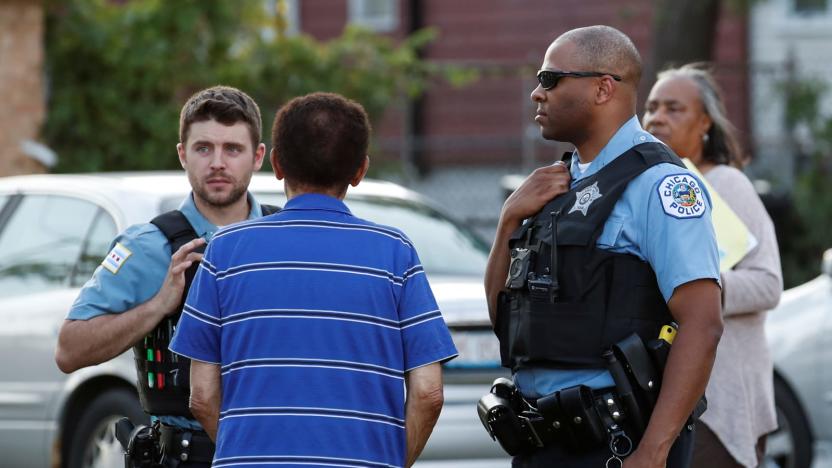
Chicago police see less violent crime after using predictive code
Law enforcement has been trying predictive policing software for a while now, but how well does it work when it's put to a tough test? Potentially very well, according to Chicago police. The city's 7th District police report that their use of predictive algorithms helped reduce the number of shootings 39 percent year-over-year in the first 7 months of 2017, with murders dropping by 33 percent. Three other districts didn't witness as dramatic a change, but they still saw 15 to 29 percent reductions in shootings and a corresponding 9 to 18 percent drop in murders.
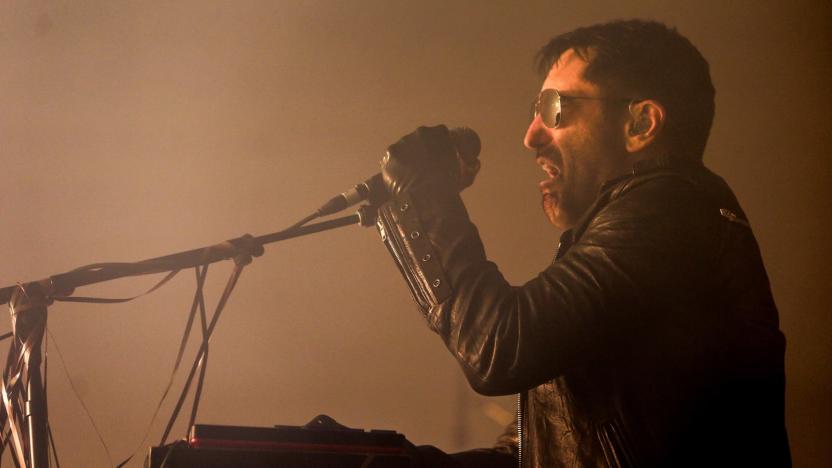
Recommended Reading: Trent Reznor on Beats, Apple Music and more
In Conversation: Trent Reznor David Marchese, Vulture Nine Inch Nails frontman Trent Reznor helped craft Beats Music, the streaming service that would eventually become Apple Music after the tech giant purchased the popular headphone brand. On the heels of NIN's most recent EP release, Add Violence, the musician sat down with Vulture to chat about a range of topics. Among other things, Reznor talks Beats, Apple Music, streaming, his new music and lessons learned.

Police body cams will soon use AI to find missing people
Motorola Solutions -- not to be confused with smartphone maker Motorola -- is adding machine learning to its surveillance equipment used by law enforcement personnel. Cops in Chicago's Waukegan police department are already suiting up with the company's Si500 body cams. But those same cameras could soon pack AI that could help officers identify objects and missing people. A prototype device is in the works with Neurala, a deep learning startup that recently integrated its software with drones to track poachers in Africa.

UK police make first arrest triggered by facial recognition
Police in South Wales have arrested a man using automatic facial recognition software. It's the first time a person has been seized this way in the UK, according to Wales Online, following a series of trials at large-scale public events including Download music festival and Notting Hill Carnival. The most recent was the Champions League final in Cardiff, which took place last Saturday (June 3rd). The man, however, was arrested three days beforehand (May 31st). In a statement to Ars Technica UK, police confirmed he was a local resident and "unconnected" to the game in Cardiff.

Dubai hopes to have a human-free police station by 2030
Is robot policing the way of the future? Dubai is well on its way to finding out. The emirate, one of seven in the UAE, is taking a technological leap of faith this week as it introduces its first robot officer to the Dubai police force. Designed by the Spanish company PAL Robotics, the specialized REEM robot stands 5 feet 6 inches high and looks like a knight in shining white plastic armor, riding in on its wheels (rather than a horse).
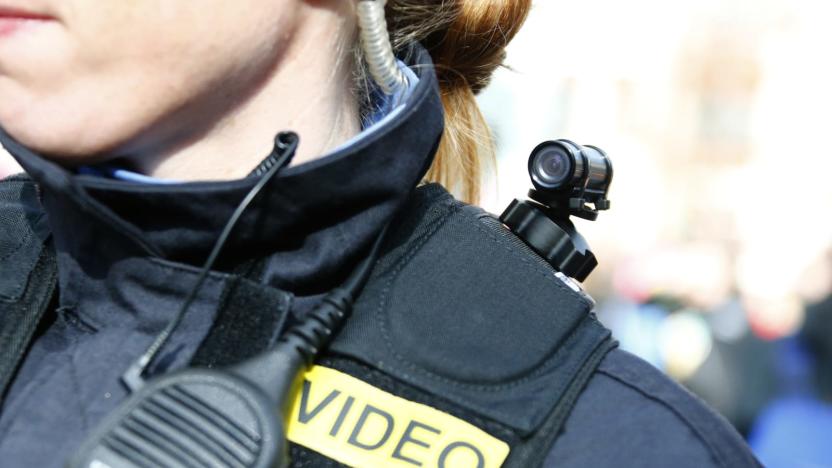
Felony charges dropped after officer admits faking body cam video
Police body-cam footage is supposed to be an objective account of what happens during a traffic stop or whatever's taking place when an officer's device is activated. The emphasis is on the "supposed to be." Recently, a Colorado case was dismissed after it was discovered that police officer Seth Jensen allegedly recreated the search of Joseph Cajar's vehicle after his November 2016 arrest, according to local publication The Pueblo Chieftain.
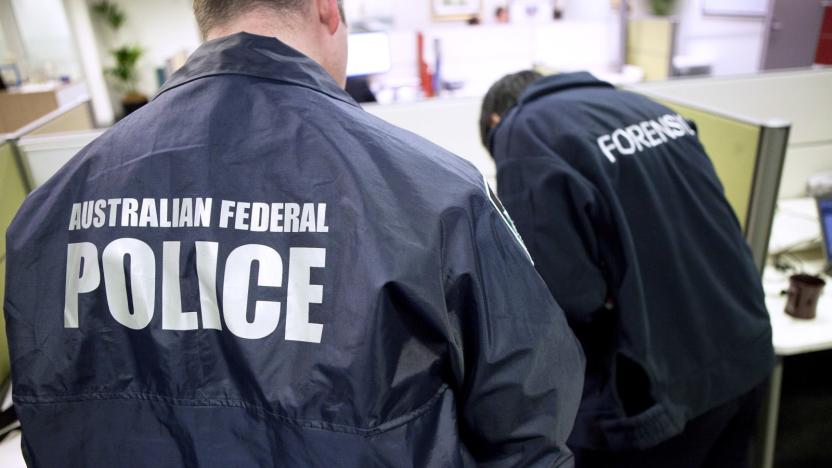
Australian cops broke data law while checking a journalist's calls
There's a good reason why privacy and civil rights advocates object to far-reaching data collection laws: even if most police and spies are well-meaning, it's all too easy for others to abuse their power or make mistakes. And the Australian Federal Police just provided a good example of this problem. The law enforcement agency has admitted that it violated Australia's Telecommunications Interception Act by accessing the data of an unnamed journalist without the necessary special warrant. Officials say the spying was due to "human error" and have mended their ways (including deleting their copy of the data), but this kind of faux pas wouldn't have even been possible if it weren't for the existence of the TIA.

NYPD faces lawsuit for withholding info on facial recognition
A think tank is suing the NYPD over its failure to reveal details about its secret facial recognition program. Georgetown University's Center on Privacy and Technology (CPT) alleges that the department hasn't complied with New York state's Freedom of Information Law (FOIL) by forking over information on the system, which the department started using to investigate crimes in 2011. When groups submitted FOIL requests for training manuals and documentation, the NYPD insisted they didn't have any, so CPT is taking the department to court.

Police will scan every fan's face at the Champions League final
If you're headed to the UEFA Champions League final in Cardiff on June 3rd, you might just be part of a massive experiment in security -- and a privacy uproar. South Wales Police are conducting a face recognition trial that could scan every one of the 170,000 visitors expected to show up in the city for the match, whether or not they're heading to the stadium. Cameras around both the stadium and Cardiff's main train station will compare faces against a police database of 500,000 people of interest. If there's a match, police will get a heads-up that could help them stop a terrorist or frequent hooligan.
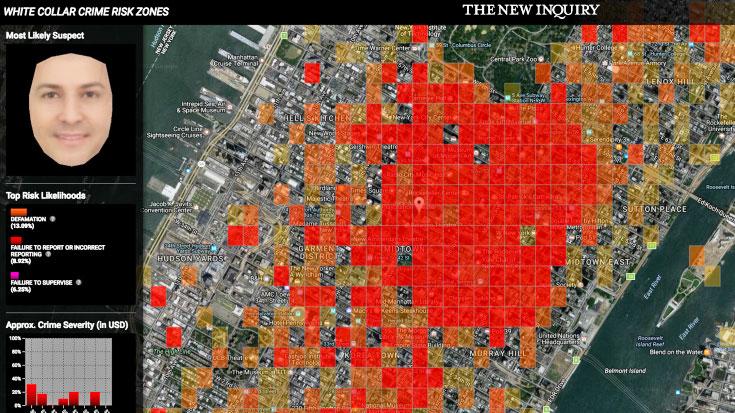
'White Collar' crime tracker mocks police profiling bias
As Police forces edge ever closer to realizing the plot of Minority Report, a new art-slash-research project aims to point out inequality in our society. With White Collar Crime Risk Zones, three artists come researchers are reworking predictive policing tech to highlight police bias. Instead of utilizing heat maps to predict where street crime could occur, this software flags potential financial crime hotspots. Using an algorithm based on historical white collar offences committed since 1964, it assesses the risk of financial crime in any given area, even predicting the most likely offense.

UK forms 'specialist squad' to tackle prison drug drones
Training carrier pigeons to fly contraband beyond prison walls is undeniably canny, but these days all you need is an inexpensive drone to do the same job. While perhaps not as reliable, remote-controlled mules carrying drugs and phones into prisons are now a persistent problem for law enforcement. So much so that today the UK government has announced a new "specialist squad of prison and police officers" has been assembled to investigate the flying smugglers.
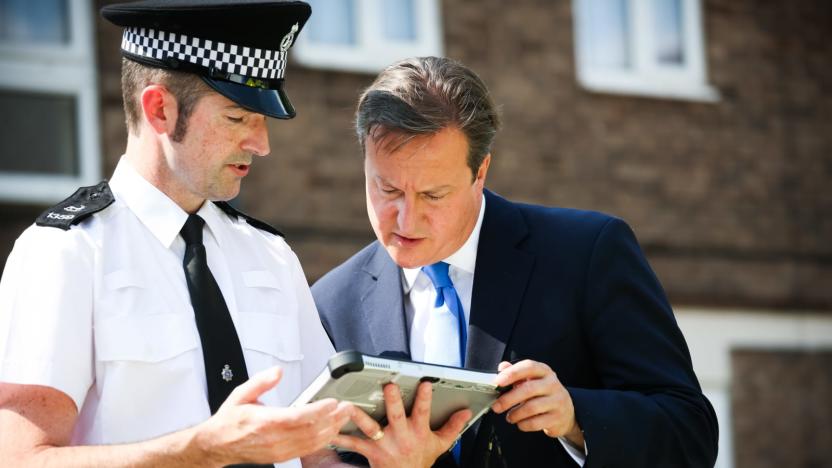
UK police often misuse sensitive data for personal reasons
It's no wonder people are so fervently concerned with privacy when little by little, it seems harder to maintain. You could now be denied entry into the US if you refuse to unlock your phone and hand it over to border agents, for example; and on the more secretive side, London police have just been credibly accused of spying on innocent Greenpeace protestors and journalists for years. While it's hard to avoid becoming numb to stories of clandestine surveillance campaigns and creeping state powers, a recent and illuminating report from The Police Federation of England and Wales details the extent at which officers are routinely breaking data protection laws by using work resources for personal reasons.

London police allegedly used hackers to target activists
If it wasn't already clear why it's a problem when police surveillance goes wrong, it is now. An independent investigator is looking into claims that London's Metropolitan Police used an illegal, roundabout way to access the emails of activists and journalists. An anonymous former worker alleges that a Met intelligence unit took advantage of India "counterparts" that used hackers to obtain email logins for innocent people ranging from Greenpeace protesters to Guardian reporters. The snooping had been going on for a "number of years," according to the insider, and there was reportedly widespread document shredding to cover up the monitoring.
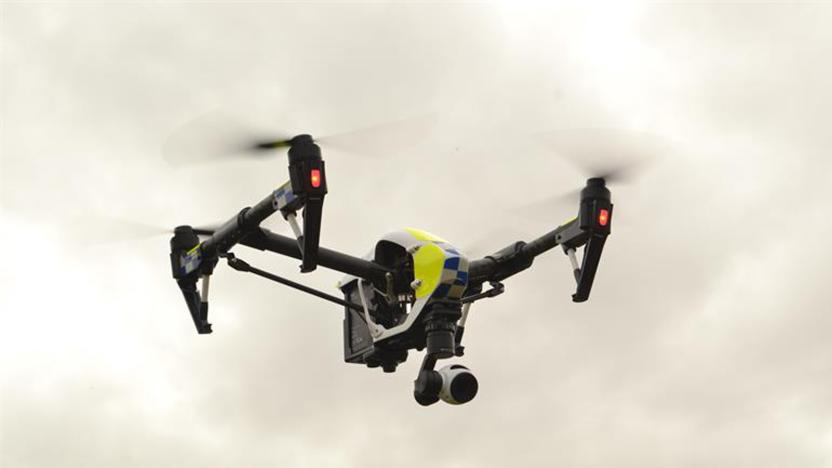
Devon police will establish the UK's first 24/7 drone squad
The Devon and Cornwall Police force is to become the first in the UK with a permanent, 24-hour drone assistance unit. The flying fuzz will be on hand to search for missing persons, seek out suspects and generally provide an eye in the sky whenever needed, gathering intel at crime scenes and responding to road accidents. The dedicated unit, which will also help out police in neighbouring Dorset, is set to launch this summer after a new "drone manager" is hired to oversee the nine sites the coppercopters will operate out of.

Sensor turns on a cop's body camera when their gun is pulled
Years after high-profile police shootings pressured departments across the country to adopt body cameras, results have been mixed. The increased accountability expected from their rollout has been marred with technical malfunctions or absent footage when officers fail to turn on their devices. Stun gun maker TASER wants to change this with a simple sensor that automatically turns on body cameras when an officer's gun leaves its holster.

ICYMI: Bulletproof origami shields and hoverbikes
Today on In Case You Missed It: Finally, the best part of Return of the Jedi is becoming a reality. Hoversurf Inc. is building actual hoverbikes for folks to ride. Well, not right away. It'll be a few years before you can buy one. But at least we can start saving all your nickels and dimes for a time when we can go barreling through the Redwoods like Luke and Leia.










